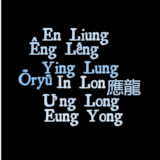Yinglong Fujun's Linguistic Corner 1 - Canterlot · 4:23am Jun 17th, 2013
Let's face it - the world of Equestria is full of puns. It puns so much that it hurts. The most eminent ones are the place names; the ones that puns are those in which 'pony' elements are inserted into place names to create 'pony' toponyms.
We know that many names of cities and places in our world - both the Old and New World - have traceable origins and meanings, which may become less and less intelligible due to linguistic, societal and political changes over the years but still exist nonetheless. Interpretation of place names usually rest on understanding which language the names originally derive from, and how to segment the names into meaningful elements.
Well then, are the new derived pony toponyms 'meaningful' in this regard? Let's look at the most prominent example in the series - Canterlot. It is an obvious play on the word Camelot, the seat of the Knights of Round Tables in King Arthur legends. One might then make an educated guess that the word Camelot may be of Ancient British origins, with close relation to Modern Welsh, seeing how Arthur is usually depicted as a 5-6th century British King. Surprisingly, this name did not come up in the songs of the native Welsh bards at all, and was in fact likely invented by medieval French romance writers by corrupting one of the original place names mentioned in earlier Arthurian legends. These writers spelled 'Camelot' differently1, and various Arthurian scholars offered their views on the source word Camelot derive from. This includes Camlann, the battlefield on which both Arthur and his bastard son/nephew Mordred were slain; Avalon the mystical island, via the influence of Breton toponym Cavallon; and last, the capital of Roman Britain - Camulodunum, or modern day Colchester.
Before looking into each of the three candidates, let's look at the word 'canter' itself. Canter refers to a controlled movement by a horse, which is faster than a trot but slower than a gallop. The word itself has a peculiar etymology - it being shortened from Canterbury pace, referring to the easy pace pilgrims took to visit Canterbury in Kent, England on horseback. The 'Canter' in Canterbury was further derived from Cantware, meaning 'dwellers in Kent'2. (If linguistic evolution works in the world of Equestria as in real life, like when you look at Luna's phony3 Elizabethan English, this little linguistic facet generates some really bemusing insinuations indeed.)
So, is the Came- part of Camelot an individual component which allows the toponym to retain sense upon replacement? Let's look at Camlann first: it is presumably from the Ancient British/Brittonic word *Cambo-glanna - "crooked bank (of a river)", or *Cambo-landa - "crooked-enclosure". So Came- correspond to *Cambo-, as in crooked. Canterlot then become 'riverbank/field on which one canters'. Make sense, huh.
What about Avalon? The primary component is *Aval-, derived from Old Welsh *abal- "apple", *aball- "apple tree". The *-on suffix may denote plurality or simply to convert the name of a household object to a proper place name. In this case, Came- and -lot do not have readily corresponding parts, because *Ava- and *-lon, probably commonly segmented this way by many people, actually are not standalone word components.
And lastly, Camulodunum itself is a Latin formation derived from Camulodunon, which is Brittonic for 'Fortress of Camulos', Camulos being a British war god equated by Romans to Mars. Again, we cannot break up the theonym into *Camu- and *-los since, well, it's a proper name, and that the name as a whole may have derive from Old Welsh camwr, meaning Champion.
This is a surprising little exercise in the etymologies of place names, and I did not expect to find a reasonable segmentation which, fortuitous as it may be, still makes sense. At least some of the very serious worldbuilders can sleep happier knowing that Canterlot may make sense as a toponym after all. See you next time!
Next up: When apple does not really mean an apple - Appleloosa
1: Including: Camaalot, Camalot, Chamalot, Camehelot (sometimes read as Camchilot), Camaaloth, Caamalot, Camahaloth, Camaelot, Kamaalot, Kamaaloth, Kaamalot, Kamahaloth, Kameloth, Kamaelot, Kamelot, Kaamelot, Cameloth, Camelot, Kamelot, Kaamelot, and Gamalaot.
2: The 'bury' part comes from the old Anglo-Saxon word burh, meaning stronghold or fort.
3: Actually, the Middle English she spoke in the series was largely correct; less so in fanfic writers' texts.



That was good, but does create a question of why you would name a city after a field when the city itself is halfway up a mountain? (good place for a fort though)
Theory: Canterlot today is named after the ancient city of Canterlot, which was where... stuff happened.
1224078 Haha, there is potential to stick a 'blame Discord' or 'blame Sombra' somewhere here. It's also not that far-fetched to consider it's been terraformed since y'know, someone here can move the darned sun and moon.